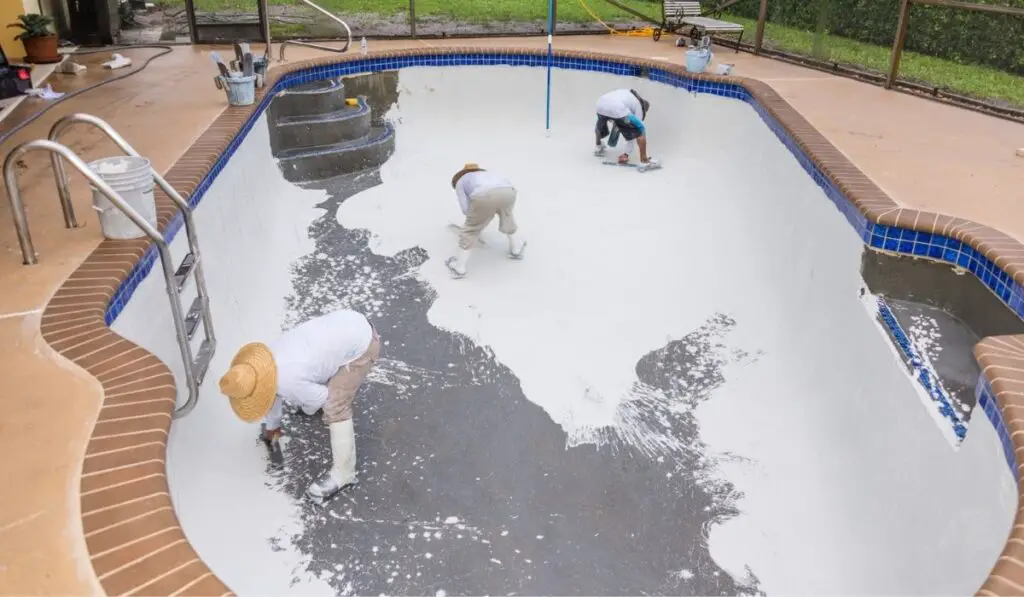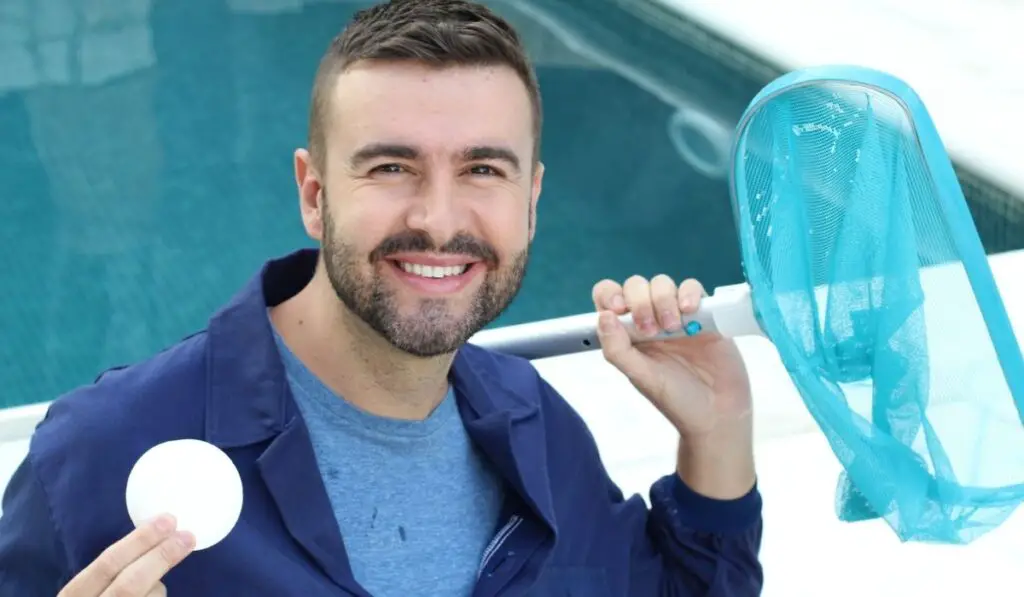While having a pool is a great luxury, it also comes with a lot of responsibility. Taking care of a pool is no simple task, and repairs can be quite costly. That’s why it’s important to do your research about each aspect of the pool and make sure you’re maintaining it properly. So what about leaving a pool empty? Can doing so cause damage?
Whether you can leave a pool empty largely depends on the type of pool it is. But for the most part, leaving a pool empty for more than a few days can cause the structure to shift, which may cause damage. Try not to leave your pool empty for any prolonged period of time to mitigate this risk.
Let’s take a closer look at the different types of pools and what can happen if you leave them empty for any longer than they need to be. The real thing to remember is that a pool is designed to be full of water – the weight of the water is taken into account when the structure is planned, so that weight of water, constantly, is expected. Especially for liner pools, the water does work keeping the liner in place, but let’s look at all the edges of this problem so you can be confident you’re making the right decision!
Different Types of Pools

There are a few different types of pools, and each of them requires different types of maintenance. The effects of an empty pool are different on different types of pools.
Concrete Pool
A concrete in-ground pool is perhaps the most sturdy of them all. A hole is dug in the ground and lined with rebar so that a pool shell can be sprayed on the bars. This usually takes quite some time, but it’s well worth it in the end since there’s less chance of damage than other pools.
Because it’s so rigid, being empty isn’t really a problem per-se, but you want to keep an in-ground pool full as much as possible because the ground is always pushing in around it. Having that heavy water in the pool to push out and balance the forces helps prevent cracking or damage of the concrete pool.
Vinyl Pool
Rather than concrete, these in-ground pools are lined with plastic. They generally need more upkeep than concrete pools and may not last as long before the structure needs to be replaced entirely. However, they are cheaper to install.
The empty pool problem is especially bad for liner pools, which can sag and tear without the water helping to support the liner and keep it in place.
Fiberglass Pool
Fiberglass pools have a pre-made structure and usually come delivered to your home as they are. Then, they’re set into a pre-made hole. It’s a much neater installation process, but they’re also much less customizable.
Emptiness shouldn’t cause as much problems on a fiberglass pool as a vinyl-liner pool.
Above-Ground Pools
Above-ground pools are exactly what they sound like. They sit on top of the ground rather than in a hole, and they’re a much more budget-friendly option, since there’s no need to have a massive hole made in your yard.
Again, emptiness isn’t as much of an issue here, because there aren’t as many competing forces on the pool. If it has a vinyl liner, sure, but the structure of an above-ground pool like this Intex Metal Frame Pool with Cartridge Filter Pump (on Amazon) is always meant to be free-standing, so the water isn’t as necessary to prevent in-fill or movement of a pool embedded in the ground.
Can You Leave a Pool Empty?
Whether you can leave a pool empty or not depends very much on the type of pool it is — but the answer is essentially no, at least not for any prolonged period of time. Quick answers were provided above, but let’s look at a little more detailed discussion.
In-ground pools
In-ground pools can’t be left empty because the structure could shift, especially if there’s a sudden rush of ground water that pushes the pool up. The water that’s usually in the pool balances the weight and keeps it in place.
There’s a misconception that the structure is heavy enough to hold — especially with concrete pools — but this just isn’t the case. While draining a pool is sometimes necessary for repairs, you should refill it as quickly as possible.
Concrete pools can be left empty for longer than other types, but it’s still best to keep it to a few days maximum.
Above-Ground Pools
It’s not a great idea to leave above-ground pools empty either, but for different reasons. The exposure to air can shrink the liner, which may present problems when you try to refill it.
Common Damage From Draining a Pool
The most common damage from draining a pool is damaging the structure. When you drain the water, it usually goes into the ground and this can push up against the liner and change the shape.
Even if you do manage to drain the water elsewhere, there’s a chance of rainwater or something else going underneath the ground and pushing on the structure. A vinyl liner can even shrink if exposed to air for too long.
Without chlorinated water in the pool, you’re also risking bacteria growth, which can cause additional issues.
How to Clean a Pool Without Draining It
If you had to drain your pool every time you needed to clean it, you’d have a lot of maintenance on your hands! Luckily, it’s perfectly possible to do most pool maintenance without a need to drain the water — and that includes cleaning it.
The best way to clean your pool if it has stains is to use a no-drain acid wash (on Amazon). Using this on the pool walls should get rid of any stubborn stains that have been there for a while, though you should be very careful when handling this substance as it can burn the skin.
Tips for Maintaining a Pool

Even when water is in the pool, it’s important to practice good maintenance tips so that you don’t have to drain it very often. Here are some tips for keeping your pool in great shape:
Maintain the Chlorine Level
Maintaining the chlorine level is essential for making sure your pool is constantly killing off bacteria and algae. Every now and then, you will also need to buy some pool shock (on Amazon) and elevate the pool to extreme levels of chlorine.
Make sure you don’t swim in the pool immediately after shocking it and test the levels before you get back in. Shock your pool after heavy use or extreme weather.
Scoop Out Debris
You should also make sure you scoop the debris out of the pool on a regular basis using a pool net (on Amazon). Do this every time you see anything in the pool to prevent bacteria from setting in.
Clean the Filter
Not only do you need to scoop out the debris and maintain the chemical level of the pool, but you should also clean the filter every 3-6 months or after a heavy storm.
This ensures that all of the bacteria is cleared away and won’t keep getting into the pool water, and it also prevents the equipment from becoming blocked or damaged.
Practice Winter Maintenance
Even when your pool is closed for the winter, you still have to keep an eye on it. Run the pump so that the water doesn’t become stagnant, break up any ice sheets that form on top, and keep an eye on the water level to ensure it doesn’t get too high. A pool cover (on Amazon) is also essential during this season.

Наш ресурс предлагает актуальные новостные материалы разных сфер.
Здесь представлены новости о политике, культуре и других областях.
Материалы выходят почти без перерывов, что позволяет не пропустить важное.
Удобная структура ускоряет поиск.
https://permgorod.ru
Все публикации предлагаются с фактчеком.
Мы стремимся к достоверности.
Присоединяйтесь к читателям, чтобы быть на волне новостей.